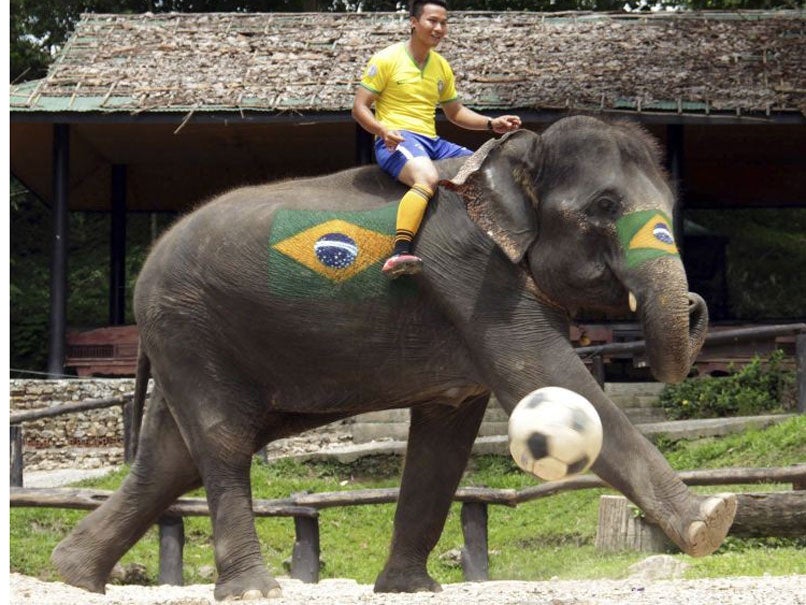World Cup 2014: Elephants show off ball skills in Thailand football match
The game, in Chiang Mai province, was held to mark the start of the World Cup

Your support helps us to tell the story
From reproductive rights to climate change to Big Tech, The Independent is on the ground when the story is developing. Whether it's investigating the financials of Elon Musk's pro-Trump PAC or producing our latest documentary, 'The A Word', which shines a light on the American women fighting for reproductive rights, we know how important it is to parse out the facts from the messaging.
At such a critical moment in US history, we need reporters on the ground. Your donation allows us to keep sending journalists to speak to both sides of the story.
The Independent is trusted by Americans across the entire political spectrum. And unlike many other quality news outlets, we choose not to lock Americans out of our reporting and analysis with paywalls. We believe quality journalism should be available to everyone, paid for by those who can afford it.
Your support makes all the difference.Brazil appeared to have the upper hand as the “Elephant World Cup” kicked off in Thailand.
Humans could do little against the elephants, each painted to represent a different country, as they showed off their superior ball control.
One seemed to slightly misunderstand the rules by picking up the ball with its trunk but with more than seven footballers in goal to defend against an elephant free kick, the friendly match seemed to pay little heed to normal regulations.
The match, at the Mae Sa Elephant Camp in Chiang Mai, was held on Monday as part of a campaign to promote the 2014 World Cup and also to discourage gambling during the competition.
Some elephant camps in Thailand have been criticised for abusing the animals, which are sometimes smuggled from the wild in Burma and other countries.
In the common practice of “phajaan”, meaning "crushing", elephants are caged and tied up to be trained to perform and take tourists on rides.
Beatings with sticks, chins and metal hooks have been reported, along with starvation and sleep deprivation to break the elephant’s spirit into submission.
Publicity around the practice in recent years has led to reform in places and more humane training methods are being increasingly used.
Supporters of the camps claim tourists can help the animals if they visit ethical camps because profits from tourism help owners care for their animals and can be used for conservation projects.
Join our commenting forum
Join thought-provoking conversations, follow other Independent readers and see their replies
Comments